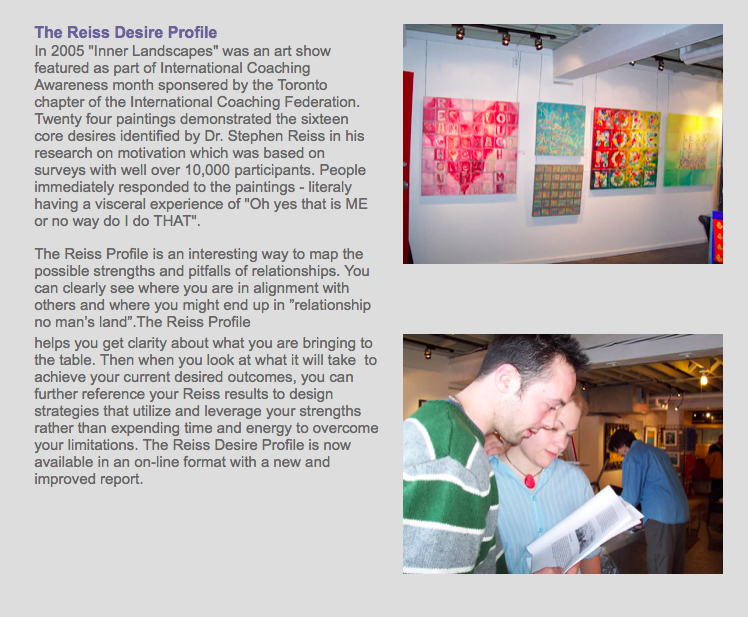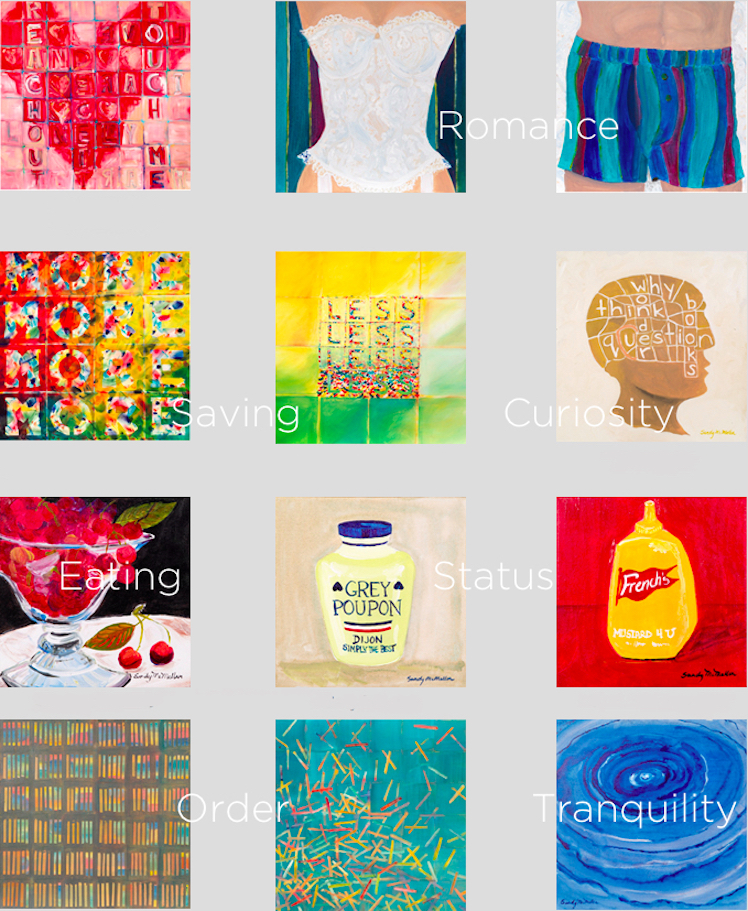The Reiss Motivation Profile
The 16 Basic Desires that Motivate our Actions and Define our PersonalitiesMotivation and Behaviour: The Reiss Motivation Profile
What the Reiss Motivation Profile measures.
Philosophers and Psychologists have been trying to explain what makes us tick from Plato to Freud to Maslow. In the previous parts of this site we have looked at type based models and now we will look at a model based on traits. Dr. Steven Reiss has taken an approach based on scientific research of over 10,000 surveys with ordinary people across a wide spectrum of life situations. The result is a comprehensive, standardized, objectively validated instrument that assesses 16 basic psychological needs.
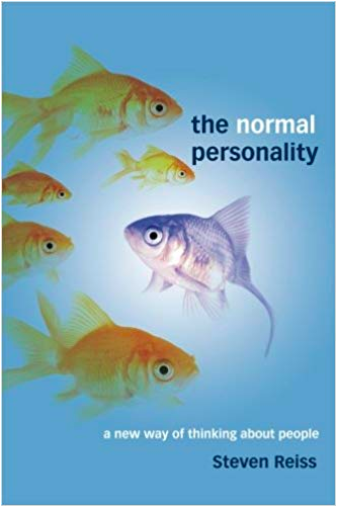
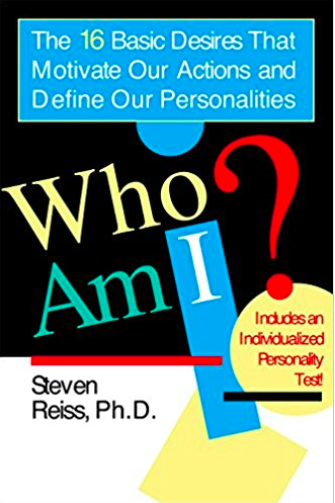
First, every need, want that we have can be reduced to 16 desires. Reiss openly offers to amend these desires by adding another if anyone can prove the need for another core desire.
Secondly, every person has a relationship with all 16 of these desires… having a high desire, being in a neutral range or having a low desire in each area. “How we prioritize these desires is what makes us individuals,” Reiss said.
The third principle is that contrasting values are what is at the root of a lot of misunderstandings and conflict between individuals. One chapter “I don’t get it and neither do you” explores this source of miscommunication. No amount of additional information or explanation solves the problem of conflicting desires. In fact it may aggravate the issue especially when someone sees their version of reality as the way things ought to be done.
The Reiss Profile is a self assessment and is therefore as accurate as each persons understanding of how they really operate. Often we report our behaviour as we wish we were and it takes some time in working with the desires to get clear on how we truly behave. Even though there is no right or wrong attached to any desire in theory, many of us have ideas of how things ought to be. We may have judgments about vengeance or honour or any desire in fact and may find it difficult to accept ourselves as we are.
Contact me to receive instructions for the assessment and to arrange a debrief by phone or Skype to consider how to apply this information to your next steps.
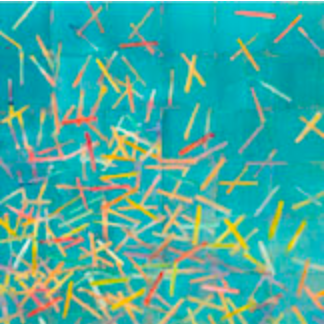
The 16 basic psychological needs are:
| Power, | the need for influence of will |
| Independence, | the need for individuality |
| Curiosity, | the need to think |
| Acceptance, | the need for approval |
| Order, | the need for organized, stable, predictable environments |
| Saving, | the need to collect |
| Honour, | the need to be loyal to the traditional values of one’s clan |
| Idealism, | the need for social justice |
| Social Contact, | the need for friends (peer relationships) |
| Family, | the need to raise children |
| Status, | the need for social standing/importance |
| Vengeance, | the need to strike back |
| Romance, | the need for sex |
| Eating, | the need for food |
| Physical Activity, | the need for exercise |
| Tranquility, | the need to be safe |
Buy your Illustrated Guide to the Reiss Motivation Profile
The PDF of the guide to the Inner Landscapes art show described below gives an overview of a sample profile, a description of each trait and an explanation of how each painting from the show fits into the profile.This guide will give you clear insights into the Reiss Desire Profile, how it may be of value to your development.
Discover your Profile of Motivational Sensitivities
This online profile gives you a snapshot of how 16 core motivators play out in your life. Some of these motivators will show a strong desire and some will show how what you avoid. The remaining desires will be in the neutral range. If we don’t have a way to address these wants, needs or desires, we simply won’t be satisfied in our life.
Arrange for your assessment and debrief.
Inner Landscapes I:
The Reiss Desire Profile Brought to Life Through Art
In 2005, the first INNER LANDSCAPES show was part of the programming for International Coaching Awareness Month. Twenty four paintings brought research by Dr. Steven Reiss on sixteen core motivators to life. The show was well received and so interactive that one person described it as theatre.

People came into the RedEye Gallery in Toronto’s Historic Distillery District during the mid-February freeze, took their coats off and wandered from painting to painting deciding how each of the sixteen desires plays in their lives. Mothers and daughters, lovers, and friends – pairs of all descriptions discovered Ah-ha moments in seeing their different reactions to the desires.
The PDF of the show guide gives an overview of a sample profile, a description of each trait and an explanation of how each painting fits into the profile.
This guide will give you clear insights into the Reiss Desire Profile, how it may be of value to you in your own self development or add to your work with clients.
